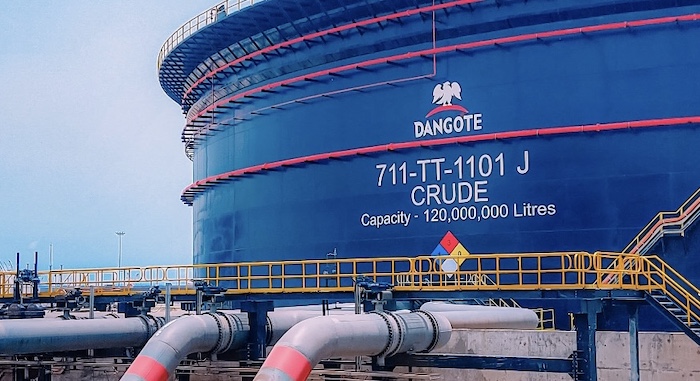
In an unprecedented move, the Dangote Petroleum Refinery has responded to the clamor from oil marketers by slashing the price of Automotive Gas Oil, commonly known as diesel, from N1,200/litre to N1,000/litre. This announcement, made through the refinery’s spokesperson Tony Chiejina, has ignited enthusiasm among stakeholders in the downstream oil sector.
The reduction, announced on Tuesday, marks a significant shift in the market dynamics, eliciting positive responses from various quarters. The move is expected to foster increased competition, ultimately benefiting consumers across the economy and potentially contributing to a reduction in the prevailing high inflation rate.
Previously, on April 10, 2024, The PUNCH exclusively reported the calls from oil marketers urging for a downward revision of diesel pump prices from the Dangote Petroleum Refinery to a range between N700 and N850/litre. This reduction, according to Mohammed Shuaibu, the Secretary of the Independent Petroleum Marketers Association of Nigeria, Abuja-Suleja Branch, signals a positive development that will drive competition and lead to further price adjustments, consequently impacting the cost of goods and services.
However, Clement Isong, the Executive Secretary of the Major Energies Marketers Association of Nigeria, expressed cautious optimism pending confirmation of the news. He emphasized the potential benefits such a move would bring to the industry.
The calls for a reduction in diesel prices stemmed from concerns over the comparatively higher cost of domestically produced diesel from the Dangote refinery, attributed to factors such as logistics expenses. The Indigenous Petroleum Marketers Association of Nigeria and the Petroleum Products Retail Outlets Owners Association of Nigeria urged the Federal Government’s intervention and appealed to the refinery’s management to consider the economic realities in setting prices.
The rationale behind the plea lies in the fact that Dangote’s domestically produced diesel carries no additional costs associated with importation, unlike imported alternatives. As such, stakeholders advocate for a pricing structure that reflects this distinction, ultimately benefiting both consumers and the broader economy.





